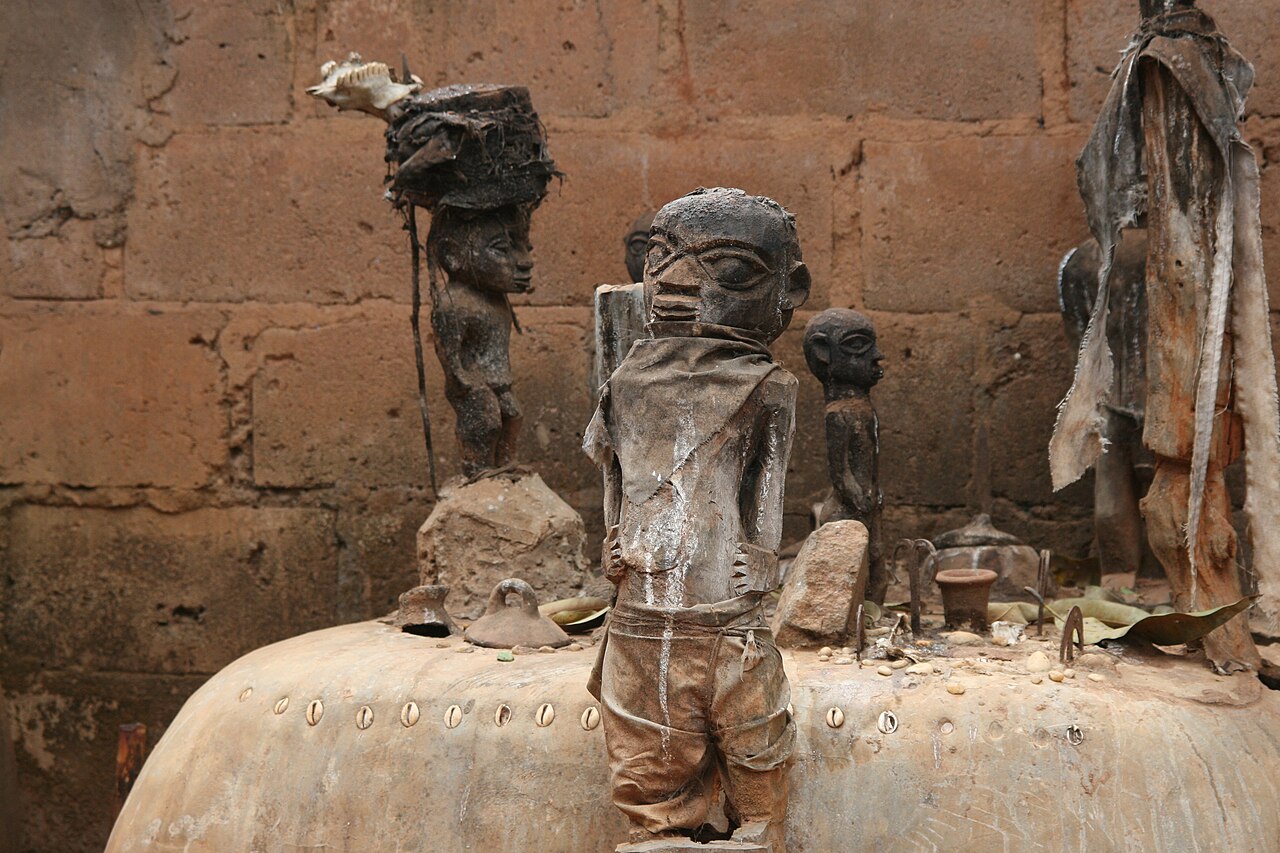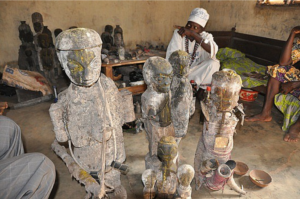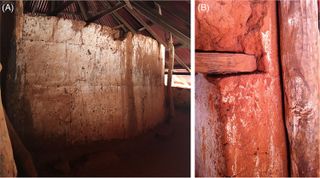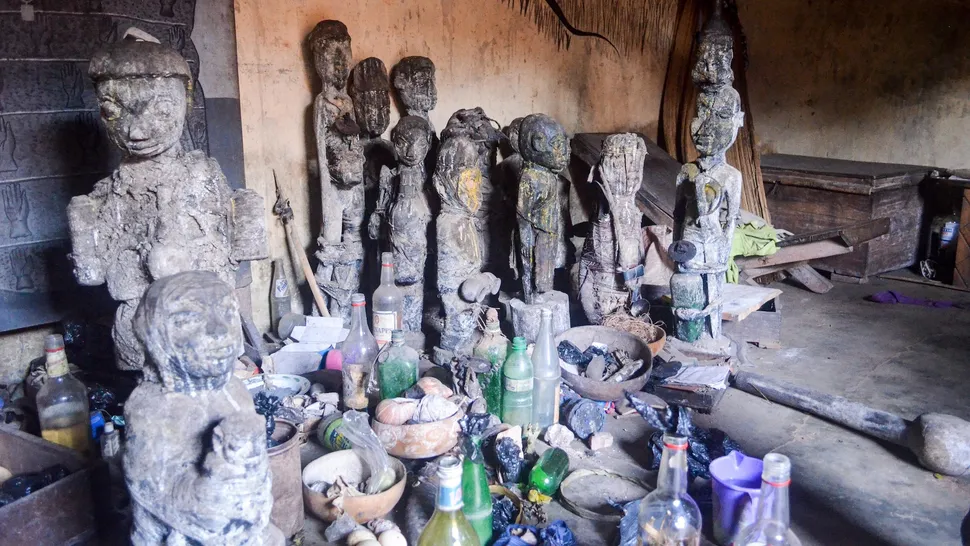In the heart of West Africa, the modern nation of Benin stands as a captivating nexus of ancient traditions and a complex, often misunderstood history. One aspect of Benin’s past that has long intrigued scholars and the public alike is the practice of voodoo, or vodun, and its ties to ritualistic human sacrifices. Recent archaeological discoveries have now provided concrete evidence to confirm the grisly legends surrounding this enigmatic culture.
The Abomey Palace Tomb: A Grim Revelation
Nearly two centuries ago, local lore in Benin spoke of a ceremonial tomb within the royal palace complex in Abomey, the former capital of the Kingdom of Dahomey. According to the legend, this tomb was said to have been constructed using a plaster that incorporated the blood of 41 human sacrifices – a sacred number in the Dahomean tradition. For years, this macabre tale remained unverified, relegated to the realm of folklore and speculation.

However, a groundbreaking new study has now brought this dark history to light. Researchers from France and Benin examined samples taken from the walls of the Abomey tomb, applying a technique called tandem mass spectrometry to analyze the proteins present. The results provided undeniable proof – the tomb’s plaster contained clear evidence of human blood, confirming the long-held legend.
“This discovery is important, as it provides concrete evidence of historical rituals and practices,” explained biochemist Jean Armengaud, the senior author of the study published in the journal Proteomics.
The Dahomey Kingdom and its Warlike Rulers
To understand the context of this grisly discovery, we must delve into the history of the Dahomey Kingdom, which flourished in the 19th century. Under the rule of King Ghezo, Dahomey became a powerful regional force, engaging in numerous military campaigns against its neighbors, particularly the Yoruba state known as the Oyo Empire.

Ghezo was known as a ruthless and calculating leader, who used the symbolism of death to cement his authority. Historical accounts describe a path to his hut paved with the skulls and jawbones of his defeated enemies, and one of his thrones stood upon the skulls of four rival leaders. The practice of human sacrifice was an integral part of the Dahomean culture, with the blood of captives often incorporated into religious rituals and architectural structures.
The Enduring Legacy of Voodoo
The Kingdom of Dahomey may have fallen, but its cultural influence lives on in the modern nation of Benin. Today, Benin is recognized as a center of the original African religion of voodoo, or vodun, which continues to thrive in the region. This ancient belief system, with its intricate rituals and reverence for the spirit world, has deep roots in the traditions of the Dahomean people.

While the practice of voodoo is often sensationalized or misunderstood in popular culture, it remains an integral part of Benin’s cultural identity. The discovery of human blood in the Abomey tomb serves as a sobering reminder of the complex and sometimes grisly history that has shaped this unique African nation.
Conclusion
The revelations from the Abomey tomb have shed new light on the darker aspects of Benin’s past, providing tangible evidence of the ritualistic human sacrifices that were once a part of the Dahomean kingdom’s cultural fabric. This discovery, made possible through the cutting-edge field of paleoproteomics, serves as a powerful reminder of the enduring legacy of voodoo and the complex, often challenging history that has forged the identity of modern Benin.
As we continue to explore and unravel the mysteries of the past, it is crucial that we approach these topics with both sensitivity and a commitment to understanding the nuances of diverse cultural traditions. The story of Benin’s voodoo rituals and human sacrifices is a testament to the complex and often troubling realities that have shaped the African continent, and it is our responsibility to engage with this history with both rigor and empathy.

